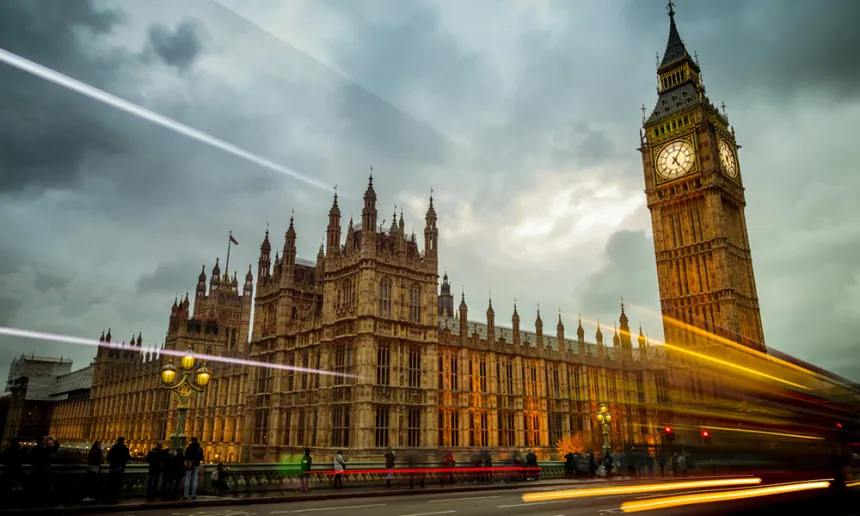DRS regulations pass in Parliament after supermarket pushback

352 MPs voted to approve the Deposit Return Scheme (DRS) regulations yesterday (21 January), despite supermarket bosses urging the Environment Secretary to delay the scheme’s launch.
The Grocer reported that the British Retail Consortium (BRC) sent a letter to the Environment Secretary that said the DRS start date is “not feasible” because of food price inflation and the scheme’s “high infrastructure costs”.
Conservative Party Leader Kemi Badenoch was among 67 Conservative MPs who voted against the motion, including former Environment Secretary Steve Barclay.
Last year, the UK’s DRS was delayed until October 2027, with Barclay telling MPs the start date was “unrealistic”.
At last year’s General Election, the Conservative’s manifesto committed to developing a “UK-wide” DRS while working to minimise the impact on businesses and consumers.
Red-letter day for Parliament, Circular Economy Minister says
 During the Parliamentary Debate, before the vote, Circular Economy Minister Mary Creagh told MPs: “We have known for decades that the ‘take, make, throw’ model causes harm. It leads to littering, landfill and incineration.”
During the Parliamentary Debate, before the vote, Circular Economy Minister Mary Creagh told MPs: “We have known for decades that the ‘take, make, throw’ model causes harm. It leads to littering, landfill and incineration.”
Creagh pointed to research by Keep Britain Tidy that estimates plastic bottles and drinks cans make up 55% of all litter across the UK.
“When it comes to addressing waste, this government will not waste time,” Creagh continued. “We are turning back the plastic tide and moving to a circular economy that keeps valuable resources in use for longer.”
Last year, Wales withdrew from the development of an aligned DRS across the UK due to time constraints that prevented the UK Government from considering a request for an exclusion from the Internal Market Act (UKIM Act).
As the Welsh Government sought to include glass in its DRS it would have needed an exclusion from the UKIM Act.
Last year, Creagh confirmed the DRS in England and Northern Ireland will include polyethylene terephthalate (PET) plastic, steel, and aluminium drink containers, but not glass.
During the debate, Labour MP Barry Gardiner asked the Circular Economy Minister if she had any discussions about the potential for manufacturers to switch their containers to glass.
Creagh said that she had met with the glass industry recently and seen no evidence of manufacturers switching materials.
“Manufacturers must be part of the deposit management organisation (DMO), so they will pay under either EPR—extended producer responsibility for packaging—or DRS,” Creagh said. “Glass has been excluded from scope on the basis of extensive consultation.”
Responding to Creagh, Shadow Secretary of State for Business and Trade Conservative MP Andrew Griffith told MPs the scheme would put “more burdens and more cost on business”.
“The scheme will also have an impact on consumers because it is ultimately consumers who will bear the burden,” Griffith said. “It is a highly regressive cost burden that will disproportionately hit those on the lowest income.”
Industry reacts
The Chartered Institution of Wastes Management (CIWM) welcomed the approval of the DRS for Drinks Containers (Eng & NI) Regulations 2024.
 Dan Cooke, Director of Policy, Communications and External Affairs, said: “This is a small but important part of the packaging (RWS) reforms which, when combined, will move the UK significantly towards greater resource efficiency and a more circular economy, whilst stimulating investment and jobs in recycling and post-consumer resource management.
Dan Cooke, Director of Policy, Communications and External Affairs, said: “This is a small but important part of the packaging (RWS) reforms which, when combined, will move the UK significantly towards greater resource efficiency and a more circular economy, whilst stimulating investment and jobs in recycling and post-consumer resource management.
“The main benefits the DRS will bring should be as an anti-litter measure and as a good way to engage the wider public in principles of resource stewardship, whilst also leading to modest increased tonnages of materials recycled and kept in the economic cycle.
“These Regs will enable the establishment of the DMO to oversee the scheme, which must have representation from small, medium, and large responsible retailers, and others, to ensure appropriate and deliverable technology and systems for all.
“There may also be scope to further assess digital DRS options to ensure widest accessibility and carbon benefits, and the potential to extend the principle to products such as batteries in the longer term.
“Although 2027 seems a fair way off, this is a challenging timescale, and all parties need to quickly see a clear timetable and schedule for implementation, starting with the planned appointment(s) of the DMO(s) in April 2025.
“There are ongoing concerns regarding the 4-nation operability of the DRS, and its imperative that we all see compatibility quickly demonstrated to avoid business and public confusion (and to head off the risk of cottage industry fraud). All-in-all another small but important step forward for better UK resource efficiency and the move towards a circular economy.”
All-in-all another small but important step forward for better UK resource efficiency and the move towards a circular economy.
Commenting on the development, David Gudgeon, Head of External Affairs at Reconomy brand, Reconomy Connect said: “With the world consuming resources faster than they can be replenished, this is a great step forwards for the circular economy and keeping precious, finite materials in circulation.
“This scheme should significantly cut down littering, plastic pollution and our carbon footprint. It is predicted to create 21,000 jobs and generate £21bn investment in our economy.
“Indeed, in Ireland, where the DRS scheme has been in effect since February 2024, over 630 million containers were returned in the first eight months.”
Lessons should be learnt from past experiences in Scotland, providing industry with certainty that commitments will be met.
In a statement shared with Circular Online, Biffa Waste Management said it was pleased to see MPs vote for the regulations, calling it a key step towards a circular economy.
The statement reads: “Cross Government and industry collaboration will be vital as the focus now turns to implementation, supported by public awareness and education campaigns to drive participation and compliance.
“Lessons should be learnt from past experiences in Scotland, providing industry with certainty that commitments will be met.
“We look forward to working with authorities at a UK, devolved nation and local level, together with drinks producers, retailers and others, to develop and deliver DRS.”
At Green Space Innovations, our mission is clear and compelling: to lead the charge towards a more sustainable and environmentally responsible world. We are committed to developing innovative solutions that not only meet the current needs for effective waste management but also anticipate and shape future environmental standards.
